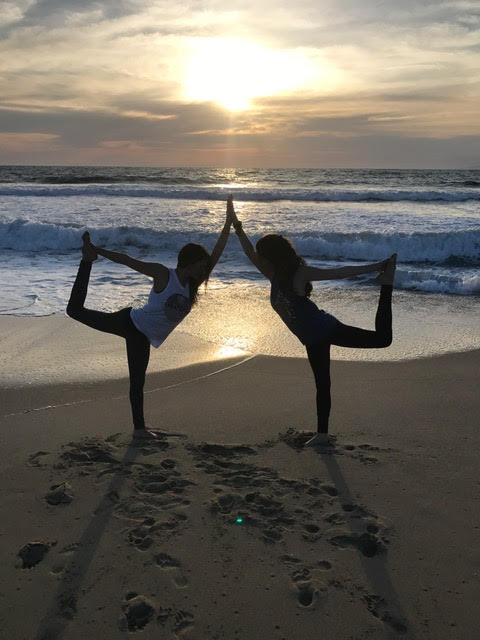Body Image is certainly not a topic or issue unique to eating disorders. It touches all women regardless of a diagnosis or illness. And it certainly doesn’t go away after the illness and unhealthy relationship with food become a thing of the past.
I have had the honor of speaking with many women lately who fall somewhere in a category of “disordered eating” or “negative self-image”, or perhaps just “a normal woman” in today's western culture. Women who are not necessarily in the middle of full-blown treatment or recovery from an eating disorder (as defined by a medical or mental health professional) but who still struggle with being at war with themselves and their bodies. These are generally high-functioning adults living their normal day to day as mothers, sisters, wives, teachers, business-women, fitness instructors, actresses, artists, etc...
Most recently, I have been honored to collaborate with some dear friends and fellow professionals on a Self-Love Mastermind with the help of the leaders and founders of Manifesting Mamas. My dear friend and colleague Josie Kramer is helping me guide women across the country on a 4-week course about body love and self image.
During this course, we show the trailer for the powerful documentary “Embrace”, created by Taryn Brumfitt, founder of The Body Image Movement. {If you have not seen this film yet, I highly recommend you do!}
This past week, our participants were courageous enough to discuss their reflections after watching the video. I feel it important to share this conversation in order to shed light on how body image can be a painful struggle for all women, and most importantly, how we can support each other in cultivating a healthy, empowering relationship with our bodies, our souls, ourselves.
*participant names are changed to protect confidentiality.
Sarah: Here's what I am struggling with after watching this. I don't want to embrace my body as it is. I want a healthier, thinner body. Not because society tells me that's what I should look like, or because I think that's what will make me more beautiful. But because I want to be healthier. Does that make sense? So I guess my question is, is the key to changing your body, first accepting it as it is now? Because until I reach my healthiest me, I want to feel happy with how I am.
Cindy: A wise woman once said, "Understanding is the first step to acceptance, and only with acceptance can there be recovery.” I like to think that I like my body as it is now but I also love the idea that I alone have the capacity to change it... and am making progress, albeit, baby steps, towards those changes every single day.
Rachel (myself): Sarah brings up such a good point and such a common struggle with the "body acceptance/self-love" paradigm. Because truly, there is nothing innately WRONG with wanting to improve ourselves, to change ourselves, to be "fit" "healthy" "lean" "curvy" "toned" or whatever your personal goals may be.
It really all goes back to balance. There is a difference between self-improvement, health and fitness - and obsessively going to unhealthy extremes (whether emotionally or behaviorally) - which is what the media, health and beauty industries thrive on.
Even when our desires to change our bodies in order to be healthy are truly SOUL-DRIVEN, and not overtly due to society telling us how we should look, there are layers and layers of shame and worth tangled in there that are influenced by outside factors, that we are often not aware of. So the real work in recovery is being aware and accepting of those factors at play while on your journey of health...so that you are completely aware of your intentionality and emotional state throughout that process.
I also love Cindy’s feedback on this!! What an empowering perspective. There is a lot to be said about liking/loving yourself and your body for all that it does - regardless of weight or size! And the truth that you alone have the capacity to make changes towards a healthier you, based on your authentic values and your innate health needs is an incredible gift!


















